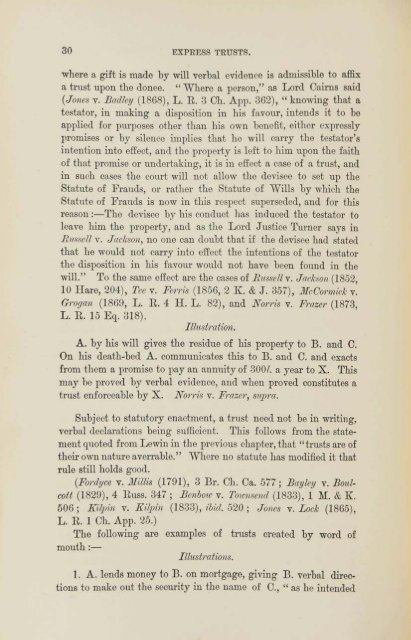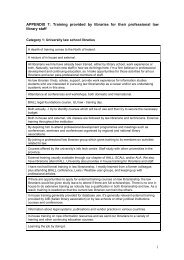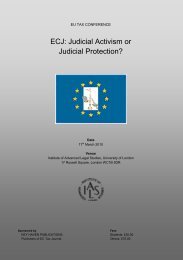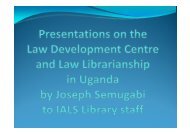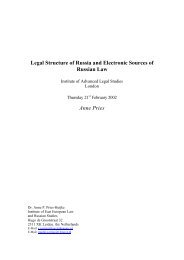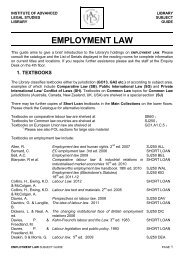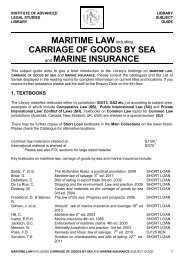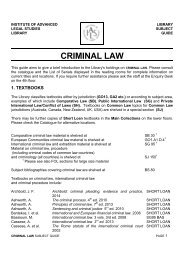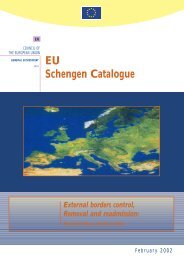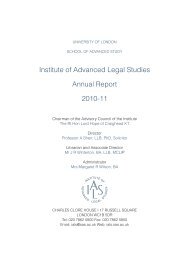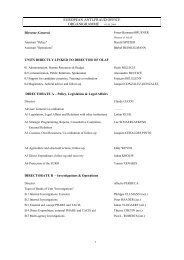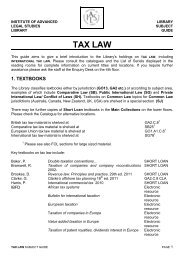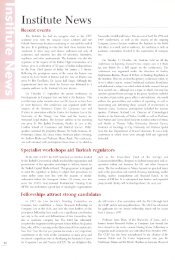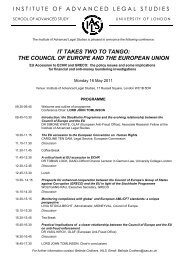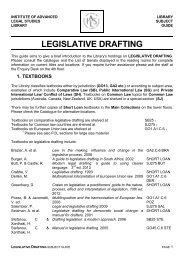a thesis - Institute of Advanced Legal Studies
a thesis - Institute of Advanced Legal Studies
a thesis - Institute of Advanced Legal Studies
You also want an ePaper? Increase the reach of your titles
YUMPU automatically turns print PDFs into web optimized ePapers that Google loves.
30 EXPRESS TRUSTS.<br />
where a gift is made by will verbal evidence is admissible to affix<br />
a trust upon the donee. " Where a person," as Lord Cairns said<br />
(Jones v. Badley (1868), L. E. 3 Ch. App. 362), " knowing that a<br />
testator, in making a disposition in his favour, intends it to be<br />
applied for purposes other than his own benefit, either expressly<br />
promises or by silence implies that he will carry the testator's<br />
intention into effect, and the property is left to him upon the faith<br />
<strong>of</strong> that promise or undertaking, it is in effect a case <strong>of</strong> a trust, and<br />
in such cases the coiirt will not allow the devisee to set up the<br />
Statute <strong>of</strong> Frauds, or rather the Statute <strong>of</strong> Wills by which the<br />
Statute <strong>of</strong> Frauds is now in this respect superseded, and for this<br />
reason:—The devisee by his conduct has induced the testator to<br />
leave him the property, and as the Lord Justice Turner says in<br />
Russell v. Jackson, no one can doubt that if the devisee had stated<br />
that he would not carry into effect the intentions <strong>of</strong> the testator<br />
the disposition in his favour would not have been found in the<br />
will." To the same effect are the cases <strong>of</strong> Russell v. Jackson (1852,<br />
10 Hare, 204), Tee v. Ferris (1856, 2 K. & J. 357), McCormick v.<br />
Grogan (1869, L. E. 4 H. L. 82), and Norris v. Frazer (1873,<br />
L. E. 15 Eq. 318).<br />
Illustration.<br />
A. by his will gives the residue <strong>of</strong> his property to B. and C.<br />
On his death-bed A. communicates this to B. and C. and exacts<br />
from them a promise to pay an annuity <strong>of</strong> 300/. a year to X. This<br />
may be proved by verbal evidence, and when proved constitutes a<br />
trust enforceable by X. Norris v. Frazer, supra.<br />
Subject to statutory enactment, a trust need not be in writing,<br />
verbal declarations being sufficient. This follows from the statement<br />
quoted from Lewin in the previous chapter, that "trusts are <strong>of</strong><br />
their own nature averrable." Where no statute has modified it that<br />
rule still holds good.<br />
(Fordyce v. Millis (1791), 3 Br. Ch. Ca. 577; Bayley v. Boulcott<br />
(1829), 4 Euss. 347 ; Benboiv v. Townsend (1833), 1 M. & K.<br />
506 ; Kilpin v. Eilpin (1833), ibid. 520 ; Jones v. Lock (1865),<br />
L. E. 1 Ch. App. 25.)<br />
The following are examples <strong>of</strong> trusts created by word <strong>of</strong><br />
mouth :—<br />
Illustrations.<br />
1. A. lends money to B. on mortgage, giving B. verbal directions<br />
to make out the security in the name <strong>of</strong> C., " as he intended


